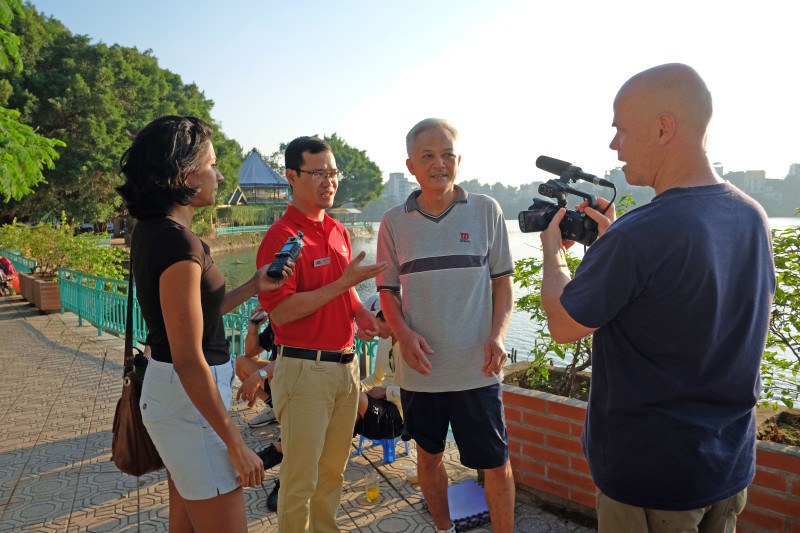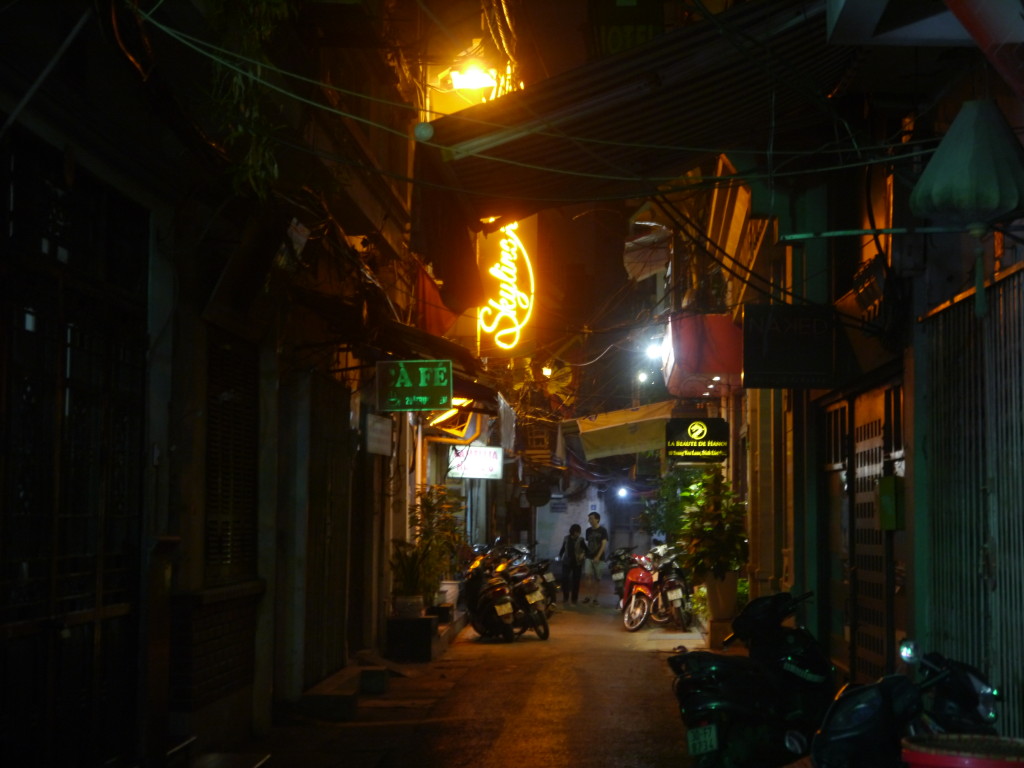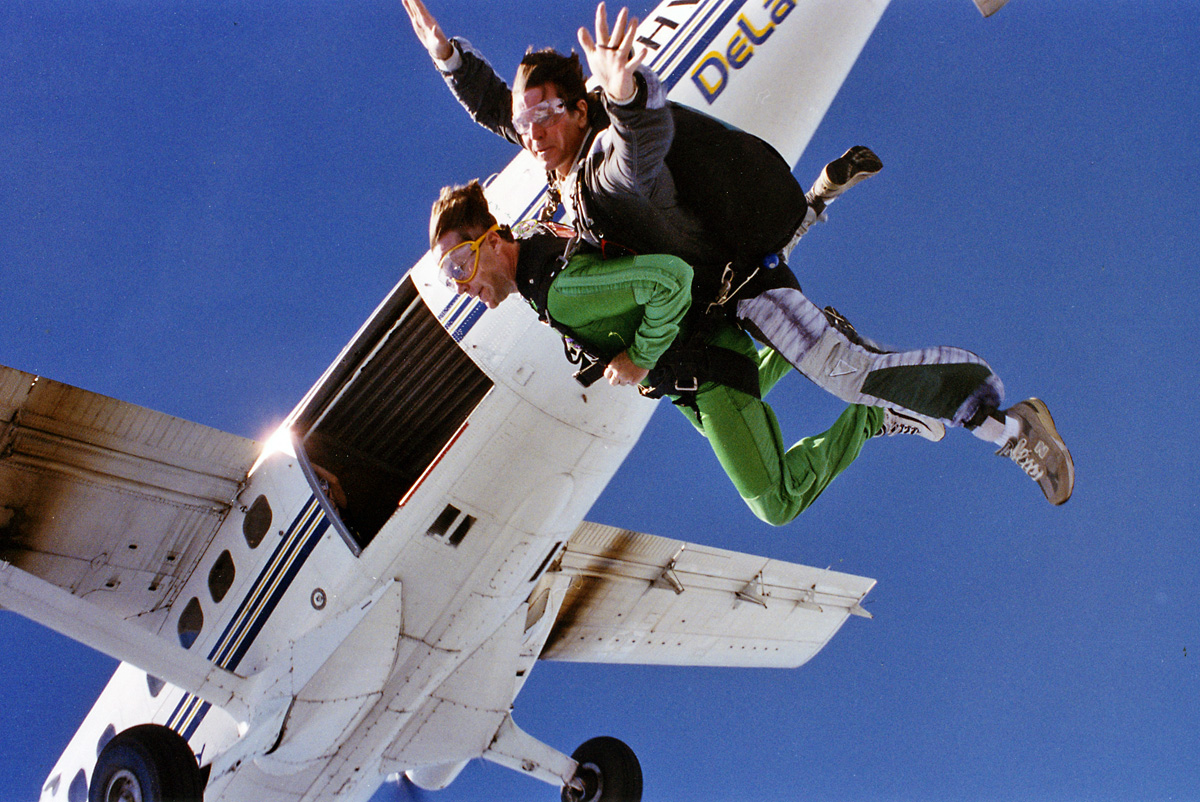“I saw him land in the lake when I was a kid” , a dignified elder gent with grey hair explained for us whilst we were looking at the point in Hanoi´s West Lake where the senator and not all to unknown American öolitician John McCain landed after being shot down by Vietnamese forces October the 25th 1967: “He almost drowned by his parachute but I was one which helped him out of the lake and saved his life”.
He smiled briefly. We were standing in front of a memory plaque commemorating John McCain. According to Wikipedia he was flying his 23rd bombing mission over North Vietnam when he was shot down by a missile. McCain fractured both arms and a leg ejecting from the aircraft. Some North Vietnamese pulled him ashore, then others crushed his shoulder with a rifle butt and bayoneted him. McCain was then transported to Hanoi’s main prison nicknamed the “Hanoi Hilton”.
Hanoi is actually one of the most extra ordinary places I have visited. It was mesmerizing and I never knew what to expect. This meeting with the guy who saved John McCain is one. My great friend Jeff Willner wrote this piece which summerizes the feeling:
It’s hard not to love Hanoi. Where jetlagged at 4 am it is a peaceful walk through city streets. Purposeful ladies with 8′ bamboo whisks clean giant arcs of leaves from city parks. Water trucks rumble down boulevards spraying away the previous days dust. Daily papers are sorted on building steps. Motor scooters flit back and forth from the all night flower market. Physical activity is prized as a virtue in Vietnamese culture, and as the sun rises at 6 am hundreds of people will gather in city squares to practice Tai Chi, aerobics, or simply dance. Young lovers sit on the Opera House steps watching the city wake, making plans, lit in the soft sodium streetlight.
“Did you know that when Vietnam declared it’s independence in 1945, we used the American declaration as our guide”, said Frank at dinner the night prior. “We hold this to be self evident that all men are created equal.” “You must be proud you won the war with America two decades later.” “That is not what we are taught”, he replied. “America lost 38,000 soldiers and we lost 4 million people, so we cannot speak of victory. It is only what was necessary to remain independent.”
Hanoi is ancient, going back a thousand years, situated in a huge river delta. A city of lakes and rivers. Still preserving it’s narrow houses, the French Quarter, the old quarter. A gloss of new money with occasional brands clustered near the Opera House. Dior. Lalique. Mont Blanc. But mostly still narrow roads, steaming bowls of hot noodles from simple shops, toddlers riding to school on the back of Mom’s scooter.
How is it then that Hanoi is so peaceful. The guilt of war remaining embedded in our consciousness. It is the people. Who value hard work, punctuality, and competence. Proud of their millenia of history. A smile and a nod from the guard outside the Metropole. Women chatter on a plaza as they limber up for morning exercise. They are part of a proud tradition stretching back much longer than our eyeblink nationhood. In the context of a thousand years of Chinese occupation, there are no hard feelings. Just purposefulness.
The city is waking up to another day in a history of hundreds of thousands. It’s hard not to love Hanoi.



